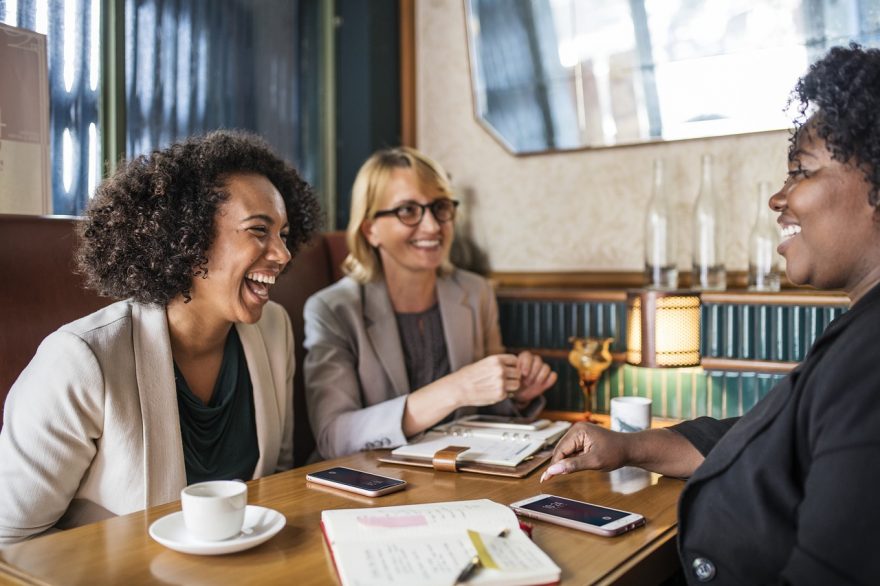Social learning is about the way we learn, while the 70:20:10 model concerns where we get our learning from. Both are linked and relevant, we think, to the work that we do at Thinking Focus, so we thought we’d take a closer look at them.
The social learning theory first formulated by Albert Bandura in 1977 shows that we learn best by imitating the behaviour and actions of others. It’s all about people learning from each other; picking up new skills, ideas, opinions and experiences from those around them.
This applies equally to learning in the workplace. Think about it: where do you feel you have learnt most of what you know? During formal education? Or from your own experience and the insights of your colleagues?
Social learning in the workplace is about interacting with others through good communication, knowledge sharing, discussion, collaboration, and being transparent about what you’re doing and why. Colleagues can help each other, either explicitly or tacitly, to understand ideas, experiences, systems, methods and processes. Yet most of us come into work with the rules set that tells us to do exactly the opposite, work it out on your own, don’t share, don’t copy other people’s work. These are the learning rules that schools operate by.
Most L&D professionals are familiar with the 70:20:10 model proposed by Charles Jennings. In fact, it has become a standard part of discussion regarding learning and development processes in the workplace. The model evolved from a report in the 1980s which analysed a survey of 200 senior managers. It found that they reported that 70% of what they knew had been learnt on the job or through experience, 20% had come from social interaction with other people, and just 10% had been learnt through formal education.
Although there’s been some criticism of the 70:20:10 model, some of which we agree with, we nevertheless think it’s useful in showing the rough proportions of experience, social interaction and education needed for learning. It does broadly tell us is that, to meaningfully and effectively learn new things, your experience and the input and experience of people around you is the most important thing. Social learning does tend to fit into 90 per cent of this model.
It’s all a great starting point for reflecting on how individuals within your workforce learn and what the best ways therefore might be for their personal development. It can be used as the basis for a wider L&D strategy that can have far reaching effects on the culture and mindset of the organisation as a whole.
At Thinking Focus, we recognise that we essentially offer the 10 per cent ‘formalised learning’ part of the Jennings model, but we do so as the basis for encouraging people to behave in the 20 per cent of the Jennings model by interacting with people, and to share the 70 per cent, their experience and knowledge.
In our coaching sessions and training workshops, and through our learning resources such as the Strategy Wall and our management development board game What Would You Do?, we are encouraging behaviours that enhance social learning. We create environments where the group learn from other and teach each other, generating conversations and giving people the tools to go and do the 20 per cent in real life. We are highlighting the untapped knowledge and experience that people could access from their colleagues.
We encourage meaningful face-to-face discussion and debate. We offer formalised learning elements and use them to highlight, encourage and create social learning by developing skills and behaviours that cause peer-based learning and self-reflection.

